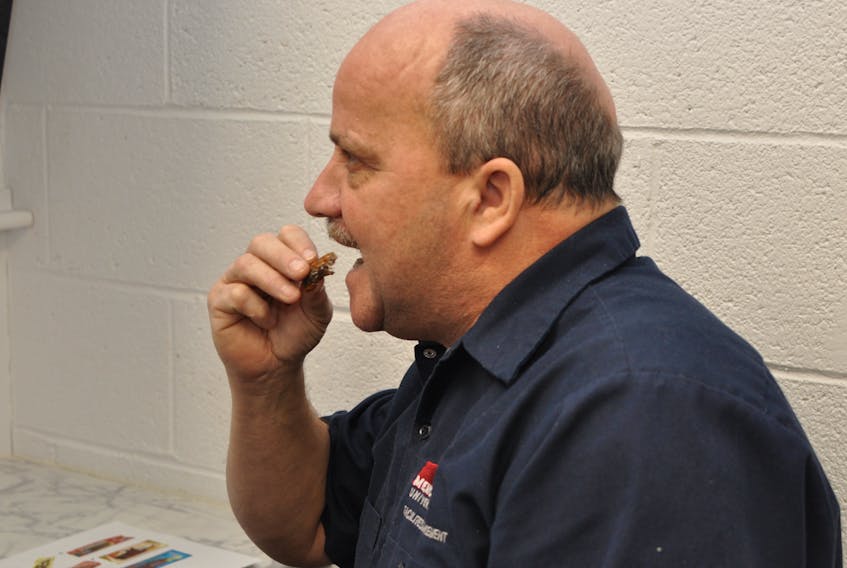An oily fish, much like mackerel is how Dan Quilty described the grilled eel he sampled in the Functional Foods Laboratory at Grenfell Campus, Memorial University of Newfoundland in Corner Brook on Wednesday.
Quilty stopped into the lab to take part in a grilled eel sensory survey — basically a taste test.
The survey is part of a project the university is working on with North Atlantic Aquaponics Inc. that could see the west coast company move into product production.
Justin Stacey is the facilities manager with company. He said the plan is to operate a kabayake facility in Black Duck to process the eels it harvest in Robinsons.
The company already ships live eels to outside markets with a lot of its customers being in Korea and Ontario.

Kabayake is a method of cooking the eel.
“Our intention is to kind of take what we have and to expand on it, and to create opportunity from that,” said Stacey.
In addition to creating more opportunity, he said it will also create more jobs.
To hone in on the best products it could get, the company availed of the services offered by the university through the food lab.
Doing so has provided the company with analytical testing of the eels and their nutritional value.
Stacey said they’re now at the stage of going through some different types of cooking methods and finding out how to preserve the nutritional value of the eel.
The method being used on Wednesday was grilling and Stacey wouldn’t say what other methods they’ll be trying as the company doesn’t want to create any more competition.
If everything goes well with product development, Stacey said the company will go into production with a plan to ship to Korea and Ontario for a first approach because of existing markets for the processed product.
Eventually there could be an opportunity for a market in Newfoundland and Labrador.
Stacey said consumption of eels was present in the generation before this one. Today there’s a bit of a stigma and it’s about finding a way to approach it.
As the graduate student heading up the project, Melissa Hamilton said it’s exciting to be part of something that could lead to the production of a new product.
Hamilton, a graduate of the university’s environmental science (biology) program, is in her first year of the master’s program in boreal ecosystems and agricultural sciences.
She said the sensory survey entailed people sitting down in a cubicle, tasting the food and giving their reaction such things as the taste, smell and the look of the product.
“We basically want to see the public’s perception of the product we’re trying to develop.”
Of the four samples presented participants were asked if they were too sweet or two salty as there was a bit of variation in each.
“Just to see if they see the difference.”
She said it’s part of the process of fine tuning the product. “To know if our product is going to be good.”
As he went through the survey, Quilty said it was the first time he tried eel.
“It’s an interesting flavour,” he said as he finished off the first sample piece.
“I kind of like smoked fish anyway, kippers for example, or smoked mackerel or smoked capelin.”
He said he guessed that eel wouldn’t be a whole lot different.
Before trying the other three samples, Quilty said he wasn’t sure if the first one was one he’d purchase.
The university hopes to have about 100 people take part in the survey, which will continue today.









